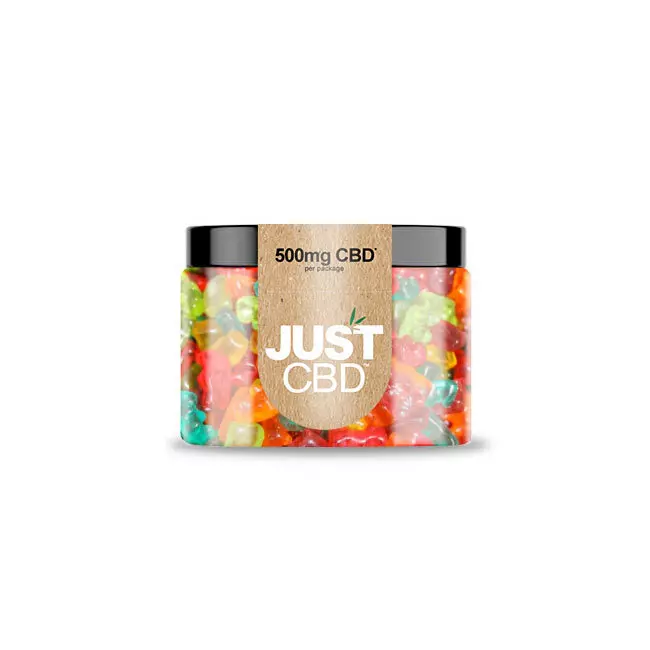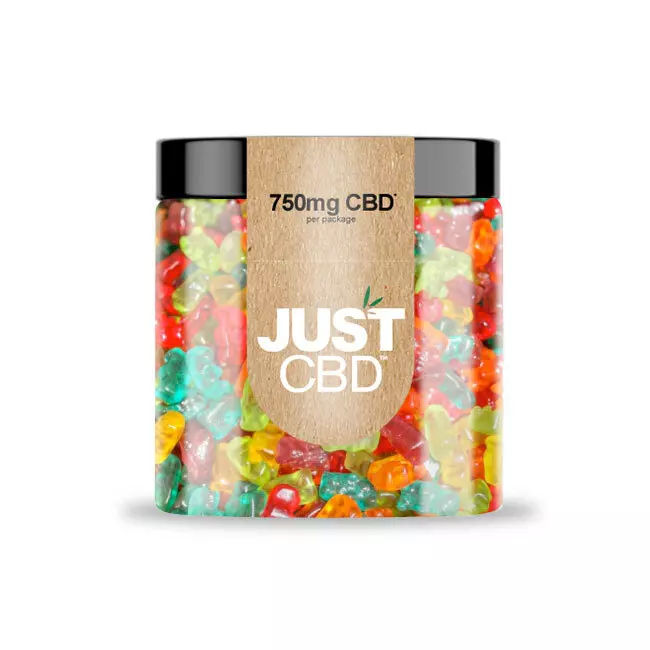How CBD Gummies Can Help With Reducing Inflammation And Swelling
Mechanism of Action
Understanding how CBD gummies can combat inflammation and swelling starts with examining their mechanism of action. CBD, or cannabidiol, interacts with the body’s endocannabinoid system (ECS), a complex network of receptors and neurotransmitters that plays a crucial role in regulating various physiological processes, including inflammation.
CBD and the Endocannabinoid System
Understanding how CBD gummies can combat inflammation and swelling starts with examining their mechanism of action. CBD, or cannabidiol, interacts with the body’s endocannabinoid system (ECS), a complex network of receptors and neurotransmitters that plays a crucial role in regulating various physiological processes, including inflammation.
The ECS consists of:
- Endocannabinoids: Naturally occurring molecules produced by the body that bind to cannabinoid receptors.
- Cannabinoid Receptors: Primarily CB1 and CB2 receptors located throughout the body, particularly in the central nervous system and immune cells.
- Enzymes Responsible for Synthesizing and Breaking Down Endocannabinoids
CBD does not directly activate cannabinoid receptors like THC (tetrahydrocannabinol), the psychoactive component of cannabis. Instead, it acts indirectly by modulating the activity of these receptors. It can:
- Increase the production of endocannabinoids
- Prevent the breakdown of endocannabinoids
- Bind to other receptors besides CB1 and CB2, influencing various inflammatory pathways
By interacting with the ECS in these ways, CBD can help reduce inflammation by:
- Suppressing the release of pro-inflammatory cytokines
- Inhibiting the activity of immune cells involved in inflammation
- Promoting the production of anti-inflammatory compounds
Interaction with Inflammatory Pathways
CBD’s ability to alleviate inflammation and swelling stems from its influence on the body’s endocannabinoid system (ECS). This complex network comprises endocannabinoids, cannabinoid receptors (primarily CB1 and CB2), and enzymes involved in endocannabinoid synthesis and breakdown.
Unlike THC, CBD does not directly activate cannabinoid receptors. Instead, it exerts its effects by modulating their activity. This can involve boosting the production of endocannabinoids, inhibiting their breakdown, or interacting with other receptors that influence inflammatory pathways.
Through these mechanisms, CBD can dampen inflammation by suppressing the release of pro-inflammatory molecules (cytokines), restraining the activity of inflammatory immune cells, and encouraging the production of substances with anti-inflammatory properties.

Potential Benefits for Inflammation and Swelling
Inflammation and swelling are common responses to injury or illness, but persistent inflammation can contribute to various chronic conditions. Reducing inflammation is a key focus for many seeking natural relief from pain and discomfort.
Joint Pain and Arthritis
CBD gummies offer a potential avenue for reducing inflammation and swelling associated with joint pain and arthritis. By targeting the body’s endocannabinoid system (ECS), CBD can modulate the inflammatory response and alleviate discomfort.
Inflammation is a natural process that helps the body heal from injury or fight off infection. However, chronic inflammation can contribute to the development of conditions like arthritis, characterized by joint pain, stiffness, and swelling.
CBD’s interaction with the ECS influences various cellular processes involved in inflammation. It can suppress the release of pro-inflammatory molecules called cytokines, which trigger pain and swelling. Additionally, CBD may inhibit the activity of immune cells that contribute to inflammation.
Some studies suggest that CBD may also promote the production of anti-inflammatory compounds, helping to counteract the effects of inflammation. These mechanisms collectively contribute to CBD’s potential in reducing inflammation and providing relief from joint pain associated with arthritis.
Skin Conditions (Eczema, Psoriasis)
CBD gummies offer a potential avenue for managing skin conditions like eczema and psoriasis due to their anti-inflammatory properties. Eczema is characterized by dry, itchy, and inflamed patches of skin, while psoriasis involves the rapid buildup of skin cells, leading to thick, scaly plaques.
- Reduces inflammation: CBD’s ability to interact with the endocannabinoid system (ECS) helps regulate the inflammatory response, which is central to both eczema and psoriasis. By suppressing pro-inflammatory cytokines and inhibiting the activity of inflammatory immune cells, CBD can help soothe irritated skin.
- Soothes itching and irritation: CBD possesses analgesic and antipruritic (itch-relieving) properties. This can provide relief from the persistent itching often associated with eczema and psoriasis, reducing the urge to scratch, which can further aggravate the condition.
- Moisturizing effects: Some CBD products, including gummies, may contain additional ingredients with moisturizing properties that can help improve skin hydration and reduce dryness, a common symptom of both eczema and psoriasis.
Muscle Soreness and Recovery
Inflammation and swelling are common responses to injury or illness, but persistent inflammation can contribute to various chronic conditions. Reducing inflammation is a key focus for many seeking natural relief from pain and discomfort.
CBD gummies offer a potential avenue for reducing inflammation and swelling associated with muscle soreness and recovery. By targeting the body’s endocannabinoid system (ECS), CBD can modulate the inflammatory response and alleviate discomfort.
- Reduces Muscle Inflammation: CBD interacts with the ECS, which plays a role in regulating inflammation throughout the body, including muscles. It can suppress the release of pro-inflammatory molecules called cytokines that contribute to muscle soreness and swelling after exercise or injury.
- Aids in Tissue Repair: Some research suggests that CBD may promote tissue repair and regeneration by stimulating cellular processes involved in healing.
- Reduces Muscle Spasms: CBD’s anti-spasmodic properties can help relax tense muscles, reducing stiffness and pain associated with inflammation.
Scientific Evidence
Scientific evidence plays a crucial role in understanding the potential benefits of CBD gummies. By examining research studies, clinical trials, and laboratory investigations, scientists gain insights into how CBD interacts with the body and its effects on various physiological processes. Through rigorous scientific methods, researchers can determine the efficacy and safety of CBD gummies for addressing specific health concerns, such as inflammation and swelling.
Preclinical Studies
Preclinical studies provide valuable insights into the potential therapeutic effects of CBD before human trials can be conducted. These studies often involve animal models and laboratory experiments, allowing researchers to investigate the mechanisms by which CBD exerts its effects on inflammation and swelling.
In preclinical studies, CBD has demonstrated promising anti-inflammatory properties in various experimental models. For example, research has shown that CBD can suppress the production of pro-inflammatory cytokines, reduce the activation of immune cells involved in inflammation, and inhibit the expression of genes associated with inflammatory pathways.
Furthermore, preclinical studies have investigated the effects of CBD on specific inflammatory conditions, such as arthritis and skin disorders. In animal models of arthritis, CBD has been found to alleviate joint pain, reduce swelling, and improve mobility. Similarly, in models of skin inflammation, CBD has demonstrated efficacy in reducing redness, itching, and scaling.
While preclinical studies provide a foundation for understanding the potential benefits of CBD, it is important to note that results obtained in animal models may not always translate directly to humans.
Clinical Trials on Humans
Clinical trials are essential for evaluating the safety and efficacy of CBD gummies in humans. These trials involve carefully designed studies that test the effects of CBD on specific health conditions or symptoms.
In clinical trials, participants are randomly assigned to receive either a CBD gummy treatment or a placebo (a sugar pill with no active ingredients). Researchers then monitor the participants for changes in inflammation, swelling, pain levels, and other relevant outcomes.
The results of these trials can help determine the appropriate dosage of CBD gummies for different conditions and assess any potential side effects.
While research on CBD is ongoing, existing clinical trials have shown promising results for managing inflammation and swelling in various conditions, such as arthritis, muscle soreness, and skin disorders.
Dosage and Administration
Dosage and administration of CBD gummies can vary depending on the individual’s needs, health condition, and product concentration. It’s crucial to start with a low dose and gradually increase it as needed, monitoring for any potential side effects. Always consult with a healthcare professional before incorporating CBD gummies into your regimen, especially if you are pregnant, breastfeeding, or have pre-existing medical conditions.
Factors Affecting Dosage
Dosage and administration of CBD gummies can vary depending on several factors, including the individual’s weight, age, health condition, and desired effect. It’s generally recommended to start with a low dose, such as 5-10mg of CBD per gummy, and gradually increase it as needed until the desired outcome is achieved.
Factors that can influence dosage include:
- Severity of Symptoms: Individuals experiencing more severe inflammation or swelling may require higher doses of CBD.
- Body Weight: Dosage is often calculated per unit of body weight.
- Metabolism: Individual metabolic rates can affect how quickly the body processes CBD.
- Drug Interactions: CBD may interact with certain medications, so it’s important to consult with a healthcare professional if you are taking other drugs.
Recommended Starting Dose
Dosage and administration of CBD gummies can vary depending on the individual’s needs, health condition, and product concentration. It’s crucial to start with a low dose and gradually increase it as needed, monitoring for any potential side effects. Always consult with a healthcare professional before incorporating CBD gummies into your regimen, especially if you are pregnant, breastfeeding, or have pre-existing medical conditions.
A recommended starting dose is typically 5-10mg of CBD per gummy. However, this can be adjusted based on individual factors and response to treatment.
Safety and Side Effects
While CBD gummies offer a potential natural approach to managing inflammation and swelling, it’s essential to prioritize safety and consider potential side effects.
Potential Interactions with Medications
Potential side effects of CBD gummies are generally mild and may include dry mouth, diarrhea, changes in appetite, drowsiness, and fatigue. It is important to note that CBD can interact with certain medications, so consulting with a healthcare professional before use is crucial, especially for individuals taking blood thinners, antidepressants, or immunosuppressants.
While CBD is generally well-tolerated, some people may experience adverse effects. These side effects are typically mild and transient, often resolving on their own with continued use.
It’s important to start with a low dose of CBD gummies and gradually increase it as needed, monitoring for any potential side effects. If you experience any adverse reactions, discontinue use and consult with a healthcare professional.
Due to the relatively new nature of CBD research, long-term effects are not yet fully understood. More research is needed to determine the safety and efficacy of CBD gummies for prolonged use.
General Safety Profile

CBD gummies offer a potential avenue for managing inflammation and swelling associated with various conditions, including joint pain, skin disorders, muscle soreness, and recovery.
Understanding how CBD gummies can combat inflammation starts with examining their mechanism of action. CBD, or cannabidiol, interacts with the body’s endocannabinoid system (ECS), a complex network of receptors and neurotransmitters that plays a crucial role in regulating various physiological processes, including inflammation.
The ECS consists of:
- Endocannabinoids: Naturally occurring molecules produced by the body that bind to cannabinoid receptors.
- Cannabinoid Receptors: Primarily CB1 and CB2 receptors located throughout the body, particularly in the central nervous system and immune cells.
- Enzymes Responsible for Synthesizing and Breaking Down Endocannabinoids
CBD does not directly activate cannabinoid receptors like THC (tetrahydrocannabinol), the psychoactive component of cannabis. Instead, it acts indirectly by modulating the activity of these receptors. It can:
- Increase the production of endocannabinoids
- Prevent the breakdown of endocannabinoids
- Bind to other receptors besides CB1 and CB2, influencing various inflammatory pathways
By interacting with the ECS in these ways, CBD can help reduce inflammation by:
- Suppressing the release of pro-inflammatory cytokines
- Inhibiting the activity of immune cells involved in inflammation
- Promoting the production of anti-inflammatory compounds
Vegan Gummies with CBD for Sale
Try unique cbd edibles from JustCBD
Explore the whole write-up
Visit the page to keep reading
- Why Does My Smile Look Weird After Fillers? - November 9, 2025
- What Is The Difference Between HA And PLLA Fillers For Bum Injections? - November 6, 2025
- What Are The Best CBD Gummy Sweets For Post-Exercise Recovery - November 3, 2025